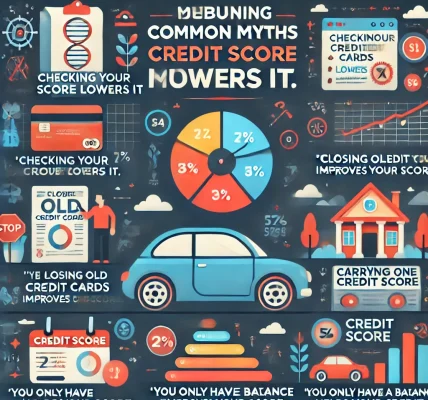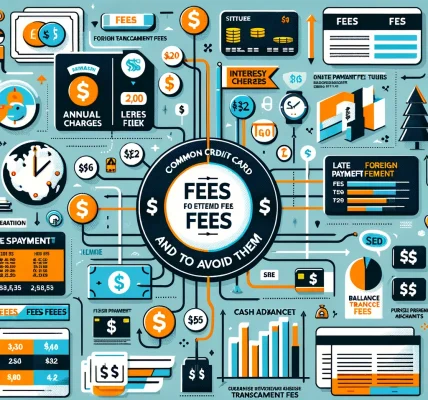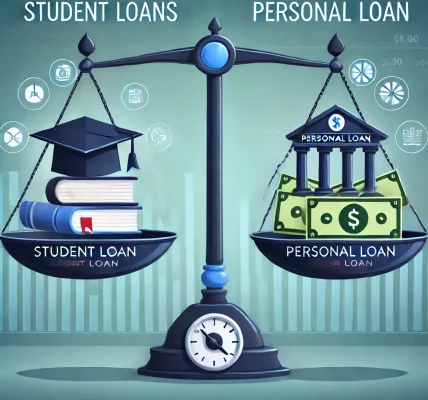Introduction:
Getting a loan without a credit history may seem like a daunting task, but it is not impossible. Whether you’re a young adult just starting out, a newcomer to the country, or someone who simply has never used credit, there are still ways to secure a loan. This guide will walk you through the process of obtaining a loan without a credit history, providing actionable steps, and shedding light on alternative options that lenders might consider.
1. Understand Why Lenders Look at Your Credit History
Before jumping into how to get a loan without a credit history, it’s important to understand why credit is so significant. Credit history shows lenders your borrowing and repayment behavior. A solid credit history assures lenders that you will repay the loan on time. Without it, lenders may be concerned about the risk of lending to you.
However, this doesn’t mean you are completely out of luck. Several alternatives exist, and lenders may look at other factors to evaluate your creditworthiness.
2. Consider Getting a Co-Signer
One of the easiest ways to secure a loan without a credit history is by getting a co-signer. A co-signer is someone with a solid credit history who agrees to take responsibility for the loan if you are unable to repay it. Having a co-signer significantly lowers the risk for lenders and increases your chances of getting approved.
- Who can be a co-signer? A close friend, family member, or someone who trusts you enough to take on this responsibility.
- Things to keep in mind: The co-signer’s credit history will be affected if you miss payments, so it’s important to stick to the loan repayment plan.
3. Apply for a Secured Loan
If you don’t have a credit history, applying for a secured loan could be a smart move. Secured loans require collateral, such as a car, house, or savings account. Since the lender has a backup if you fail to repay, they are more likely to approve your application despite your lack of credit history.
- Examples of secured loans: Auto loans, home equity loans, or secured personal loans.
4. Explore Alternative Lenders
Traditional banks and credit unions may not be the only places to get a loan. There are numerous online lenders and alternative financial institutions that specialize in helping individuals with no credit history. These lenders often rely on alternative data, such as your income, employment history, and even your utility bill payments, to determine your eligibility for a loan.
- Fintech Lenders: Some digital platforms offer personal loans without requiring a credit history.
- Peer-to-Peer Lending: Platforms where individuals lend to other individuals directly, without going through traditional banks, may offer you a better chance of approval.
5. Use a Credit Builder Loan
A credit builder loan is specifically designed for people who have no credit history or are looking to rebuild their credit. With this loan, the amount you borrow is held in a savings account until you repay the loan. The payments are reported to credit bureaus, helping you build your credit score over time.
- How it works: You make monthly payments, and once the loan is paid off, you get the money back, minus any fees or interest.
- Where to find one: Many local credit unions or online banks offer credit builder loans.
6. Consider Applying for a Payday Alternative Loan (PAL)
If you need quick access to cash, payday alternative loans are another option. Offered by credit unions, PALs are smaller loans with lower interest rates than payday loans. They don’t require a credit history, making them an ideal option for those without a credit score.
- Note: While PALs have lower interest rates compared to payday loans, they can still carry high fees, so make sure to read the terms carefully.
7. Show Proof of Steady Income and Employment
Lenders who don’t rely on credit history will look at your income and employment stability as major factors in deciding whether to approve your loan application. Having a steady income or proof of employment gives lenders the confidence that you’ll be able to repay the loan.
- What to include: Pay stubs, bank statements, or employment verification letters.
- Tip: A well-written letter explaining your situation, such as why you don’t have a credit history, can help build trust with the lender.
8. Opt for a Microloan
Microloans are small loans, typically provided by non-profits, community lenders, or government-backed organizations, aimed at helping people with no credit history or those who are ineligible for traditional loans. These loans are designed to support your financial needs, especially when you’re starting or growing a business.
- Eligibility: Microloans are usually available to individuals who have a lower income or are self-employed. They may also be accessible to entrepreneurs who lack credit history.
Conclusion:
While securing a loan without a credit history can be challenging, it’s far from impossible. By exploring alternative lenders, using secured loans, considering a co-signer, and demonstrating your financial responsibility, you can successfully obtain a loan. It’s important to choose the loan type that suits your needs, understand the terms, and ensure timely repayments to build your credit for future borrowing.




